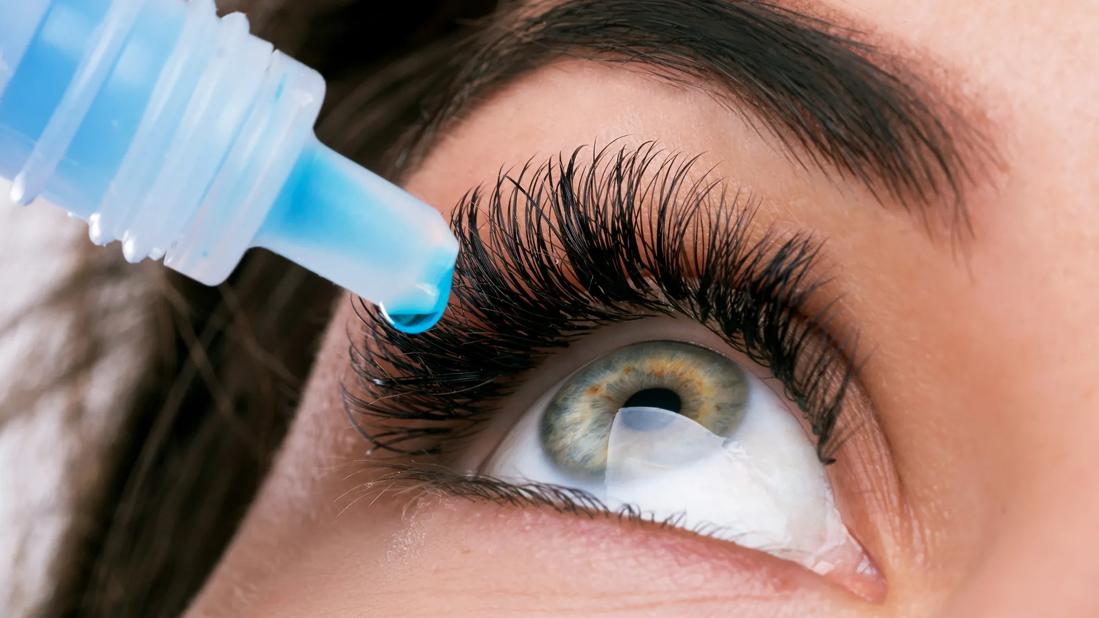Preservative-free lubricating drops, a humidifier, sunglasses and preventive medications can help with dry eyes, no matter the season

Image content: This image is available to view online.
View image online (https://assets.clevelandclinic.org/transform/f4c72e17-8d62-4971-a047-9ac88c25b024/eye-drops-1182318206)
Eye drops being dropped into an adult's eye
Many people associate dry eyes with cold, stale winter months. But evaporative dry eyes can strike year-round, even when you live in an area that doesn’t experience all four seasons. Optometrist Alexandra Williamson, OD, shares some dry eye triggers and what you can do to prevent them.
Advertisement
Cleveland Clinic is a non-profit academic medical center. Advertising on our site helps support our mission. We do not endorse non-Cleveland Clinic products or services. Policy
Because of changes in weather and reintroduction to allergens (like pollen or dust), seasonal shifts may cause an increase in styes and clogged meibomian glands. These glands produce an oil that keeps your tears smooth. If they get clogged or blocked, your tears don’t get enough oil and become thin and runny. This leads to evaporative dry eyes, a condition in which your tears dry up quickly, leaving your eyes irritated, dry and uncomfortable.
Dr. Williamson says some of the environmental factors that can trigger dry eye symptoms (like itchiness, redness and watery eyes) include:
“Your eyes may be drier because of your hormones, your diet, the environment and the air around you or even because you’re not blinking as much,” adds Dr. Williamson. “We see these problems year-round.”
One of the keys to treating dry eyes is having regular, annual appointments with an optometrist, especially if you know your dryness gets worse in a specific season.
“For anyone dealing with seasonal allergies, we can recommend certain allergy medications ahead of time because we know their symptoms are coming,” notes Dr. Williamson. “We know medication will make them feel better and prevent them from having histamine release that would cause more symptoms later on.”
Advertisement
When dry eyes strike, try not to rub your eyes. This causes further irritation and introduces more of the allergen and other bacteria directly to your affected eyes. Instead:
If you try these strategies and still have a hard time with dry eyes, an optometrist can help you see more clearly with other kinds of treatment.
“With a lot of advancements in the way we treat dry eyes, we can help with different eye drops or medications. For more serious, chronic cases, we can offer implants or eyelid repositioning,” reassures Dr. Williamson.
“All of these procedures are individualized, so it’s best to come in and talk to the experts to see what solutions work for you.”
Advertisement

Sign up for our Health Essentials emails for expert guidance on nutrition, fitness, sleep, skin care and more.
Learn more about our editorial process.
Advertisement
Pink eye tends to start in one eye before spreading to the other, while allergies usually affect both eyes at the same time
Early morning red eyes can be a sign of several conditions, like dry eyes, allergies and eye strain
See an eye specialist if your pain isn’t going away and comes with other symptoms
Your eyes could be burning because of allergies, elevated salt levels, dry eyes and more
One is a raised yellow spot on your eye, the other is a fleshy growth
When worn incorrectly, contacts can cause or worsen dry eye symptoms
In moderation, vitamins A, C, D, E, B12 and omega-3 fatty acids can improve and maintain your eye health
Pink eye usually refers to infectious conjunctivitis, which can look similar to allergies or other infections and eye conditions
Although it could be used as a moisturizer, this new trend is not recommended
Communicating clear limits helps protect your time, energy and emotional well-being
High cholesterol can be genetic, but testing and treatment can lower your heart disease risk